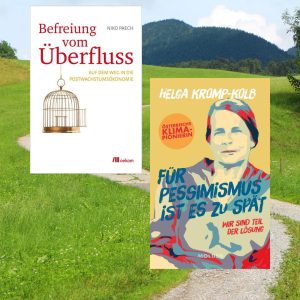Simply lock away carbon dioxide?

Carbon management strategies are needed to achieve net-zero CO2 emissions. BOKU process and energy engineer Tobias Pröll advocates methods that removeCO2 from the cycle and prevent the release of unavoidableCO2 into the atmosphere, such as that produced during cement production or waste incineration.
The discussion about the use of carbon capture and storage (CCS) forCO2 mainly revolves around the search for ways to store climate-damagingCO2 in the geological underground (carbon capture and storage, CCS) or in suitable long-life products (carbon capture and utilization, CCU). CCS is already being used in Scandinavia, but is prohibited in Austria. The relevant law is currently being re-evaluated.
Problematic substance without energy content
"We have to recognize thatCO2 is not a valuable raw material, but a problematic substance with a negative value. Currently, one ton ofCO2 'costs' around minus 90 euros in the European emissions trading system," says Tobias Pröll from the Institute of Process and Energy Engineering at BOKU University. "In Austria, we urgently need a waste management system forCO2, similar to that for other problematic substances."
CO2 is often presented as the raw material of the future.
"But this overlooks the energy aspect. Because if I want to produce something fromCO2, I have to reverse the combustion reaction in which theCO2 is usually produced. This reversal then requires the same energy that was previously released. However, this principle becomes absurd if I live in a world that is 80 percent fossil-fueled," explains Pröll.
Supplement to CO2 avoidance
It is important to emphasize that the Carbon Capture and Storage Strategy should not be seen as a justification for the use of fossil fuels, but as a complement to the switch to renewable energies. CCS should only be used in areas where it is not feasible to avoid thegeneration of CO2, such as cement production.
In all other areas, the production ofCO2 must be avoided, especially in the area of energy supply.
"We have to stop using fossil fuels. Worldwide, 80 percent of energy is still provided from fossil sources - in Austria it is around 65 percent. The only way to counteract this is to accelerate the expansion of renewable energy systems," emphasizes the BOKU process and energy engineer.
Even if Austria succeeds in reducingCO2 production, there are still concerns about the import of many products from abroad, for example from China, where a lot of fossil energy is used.
"It is important for the climate to look at the big picture and not just act within national borders. The relocation ofCO2-intensive processes from Europe to other countries also harms the climate," said Pröll.
If politicians start to implement an efficient, emission-free energy system, there will be a decline in the sale of fossil fuels and a fall in world market prices for natural gas and oil. Our policy must be robust enough for this scenario.
"One example of this would be taxing products at the end consumer according to the greenhouse gas emissions caused, regardless of where the emissions occur along the supply chain. It would be possible for the taxes levied to be paid back equally to the people. Then companies would strive to make their supply chain climate-friendly and people would feel better about buying products with low taxes. Such a policy would put us on course towards climate neutrality," concluded Pröll.






